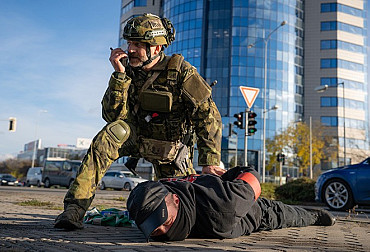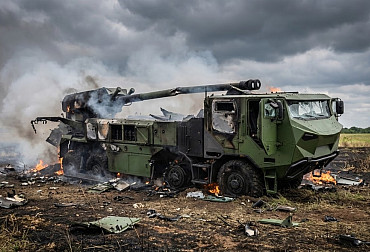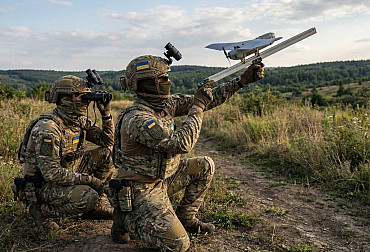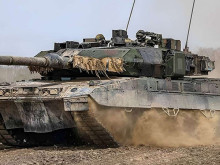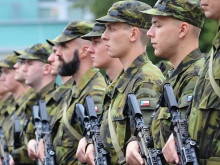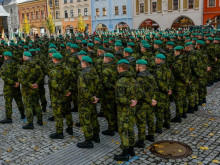The Ministry of Defence proposes an amendment to the Constitution - asking for a simpler procedure for sending Armed Forces abroad
In the context of the worsened security situation in the world and with reference to the ongoing war in Ukraine and the experience it brings, the Ministry of Defence is submitting a draft constitutional law, the purpose of which is, in principle, to simplify and extend the authority of the Government to send the Armed Forces of the Czech Republic abroad and to authorise the stay of foreign armed forces on our territory. This is an amendment to the current wording of Article 43 of the Constitution of the Czech Republic, which was introduced by Constitutional Act No 300/2000. In addition to experience, current developments and imminent threats, it also concerns, among other things, the issue of the deployment of the Czech Armed Forces within the framework of the NATO Very High Readiness Joint Task Force (VJTF) established in 2014. The current regulation appears to be cumbersome in some respects and limits the possibility of deploying the armed forces to a narrow range of operations. After 22 years, simplification of the necessary procedures, while retaining Parliament's power to make the final decision, is entirely appropriate.
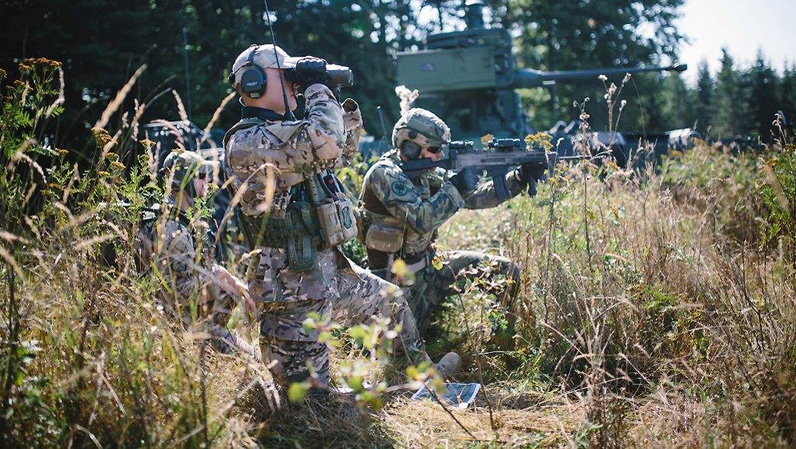 Picture: Ministry of Defence calls for simpler procedure for sending armed forces abroad (illustration photo) | Ministry of Defence of the Czech Republic
Picture: Ministry of Defence calls for simpler procedure for sending armed forces abroad (illustration photo) | Ministry of Defence of the Czech Republic
The most important change relates to paragraph (4) of Article 43 of the Constitution, which so far enumerates, in a), b) and c), and thereby limits the grounds on which the Government may send or decide to send foreign armed forces abroad to stay on our territory, to a maximum period of 60 days. These are:
a) the fulfilment of obligations under international treaties on joint defence against attack,
b) participation in peacekeeping operations pursuant to a decision of an international organisation of which the Czech Republic is a member, with the consent of the receiving state,
c) participation in rescue work in natural disasters, industrial or environmental accidents.
In the proposal, points (a), (b) and (c) have been deleted because they do not cover the full range of possible legitimate purposes and thus unnecessarily complicate the actionability of the Government and, consequently, the Armed Forces in other situations. The 60-day limitation and the full control of Parliament are then retained in the proposal. The legitimate purpose of the deployment of the Armed Forces includes the deployment of troops mentioned in the explanatory memorandum to save the lives of Czech citizens unlawfully detained abroad or citizens whose lives are threatened by disasters, accidents, etc., when, for example, the effective intervention of the armed forces/police of the country where such a situation has occurred cannot be relied upon. In addition to the special units of the Police of the Czech Republic, whose deployment is not subject to Article 43 of the Constitution, it may be appropriate to use units of the Armed Forces of the Czech Republic, specifically Special Forces.
Another purpose may be the measures necessary to deal with the consequences of illegal migration, which we observed very intensively last year, when Poland was subjected to targeted provocation by Belarus with the Lukashenko regime exploiting migrants from the Middle East, and we can also recall the situation in 2015 and the incidents on the EU's external border, particularly in Hungary. Even in these situations, a quick and effective decision - which can be reviewed retrospectively and possibly overturned by a vote of one of the two chambers of the Parliament, but not often appropriate/possible to wait for prior approval by MPs or Senators - can be crucial for the effective deployment of Armed Forces.
And prior Parliamentary approval can also complicate the deployment of the NATO Response Force (NRF) in some situations - the NRF is expected to respond within days, and obtaining timely approval from both Houses of Parliament may not be possible in all circumstances.
Paragraph 5 is also to be amended to facilitate the authorisation of passages and flights of foreign armed forces through the territory of the Czech Republic. The scrutiny of Parliament provided under paragraph 6 is to be retained, with the proviso that the Government would now inform Parliament not 'without delay' but 'without undue delay', a more accurate and appropriate expression of the same, or that the information to Parliament would be in the manner and timeframe customary in communications between the Government and Parliament.
This is not a new development; the same amendment was tabled in response to changes in the international security environment in 2016 and 2019, but despite its non-conflicting nature and cross-spectrum support, it was not finalized in those elections. Russia's attack on Ukraine, and the associated clear need for operational capability, demonstrated by, among other things, the establishment of a new NATO battlegroup in Slovakia, underline the appropriateness of these changes.
The explanatory memorandum lists the reasons for the current proposal as follows:
a) Russia's aggressive behaviour, which culminated in the military attack on Ukraine in February 2022, poses an imminent threat to the security of the Czech Republic;
b) an unprecedented number of security threats, consisting in particular of terrorism, illegal migration and instability in states close to North Atlantic Treaty Organisation (NATO) and European Union (EU) member states;
c) an increase in the number of actors, including non-state actors, threatening peace, democracy, civil liberties, security and stability in the world;
d) a return to a broad-based understanding of how security is influenced, where a combination of diplomatic, economic, intelligence and military tools, popularly known as hybrid warfare, is used to advance the interests of states.











